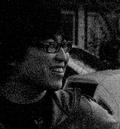Cited By
View all- Lugito NCucunawangsih CSuryadinata NKurniawan AWijayanto RSungono VSabran MAlbert NBudianto CRubismo KPurushotama NZebua A(2024)Readiness, knowledge, and perception towards artificial intelligence of medical students at faculty of medicine, Pelita Harapan University, Indonesia: a cross sectional studyBMC Medical Education10.1186/s12909-024-06058-x24:1Online publication date: 27-Sep-2024
- Sarkar A(2024)AI Should Challenge, Not ObeyCommunications of the ACM10.1145/3649404Online publication date: 18-Sep-2024
- Zhou XZhou YGong YCai ZQiu AXiao QAntle ABai Z(2024)"Bee and I need diversity!" Break Filter Bubbles in Recommendation Systems through Embodied AI LearningProceedings of the 23rd Annual ACM Interaction Design and Children Conference10.1145/3628516.3655802(44-61)Online publication date: 17-Jun-2024
- Show More Cited By




